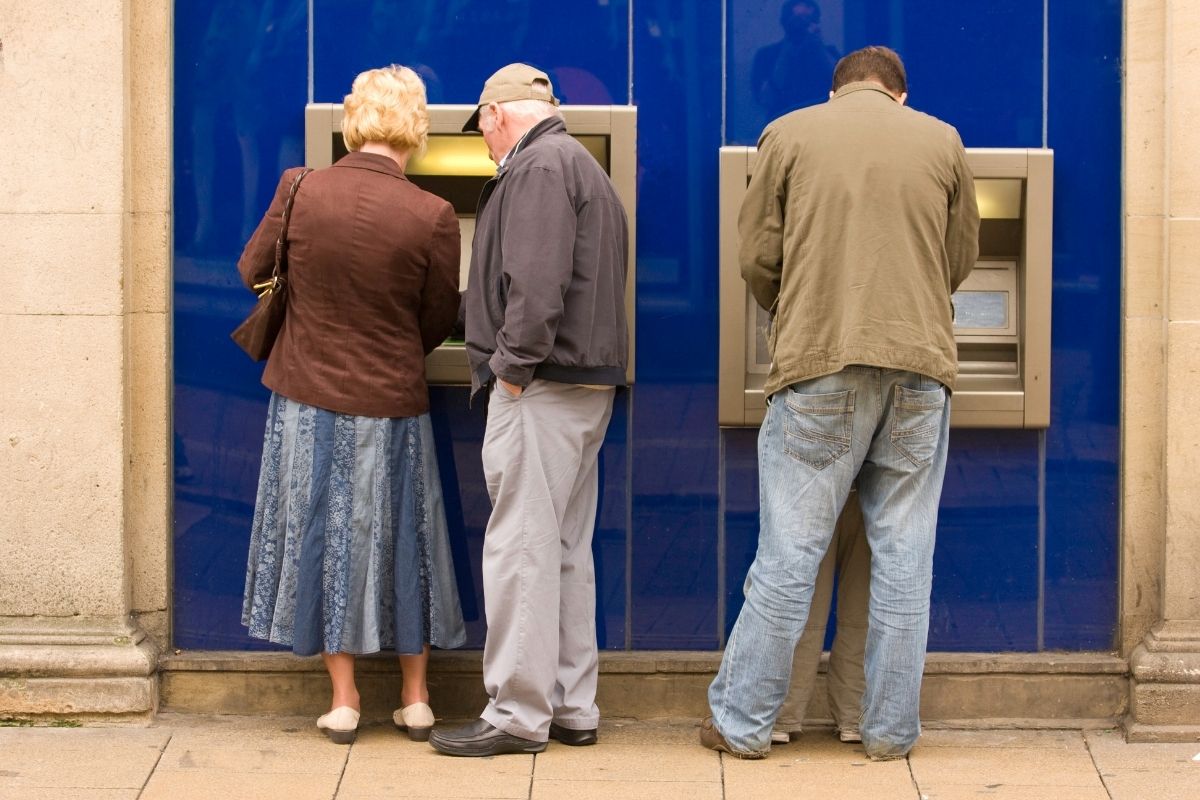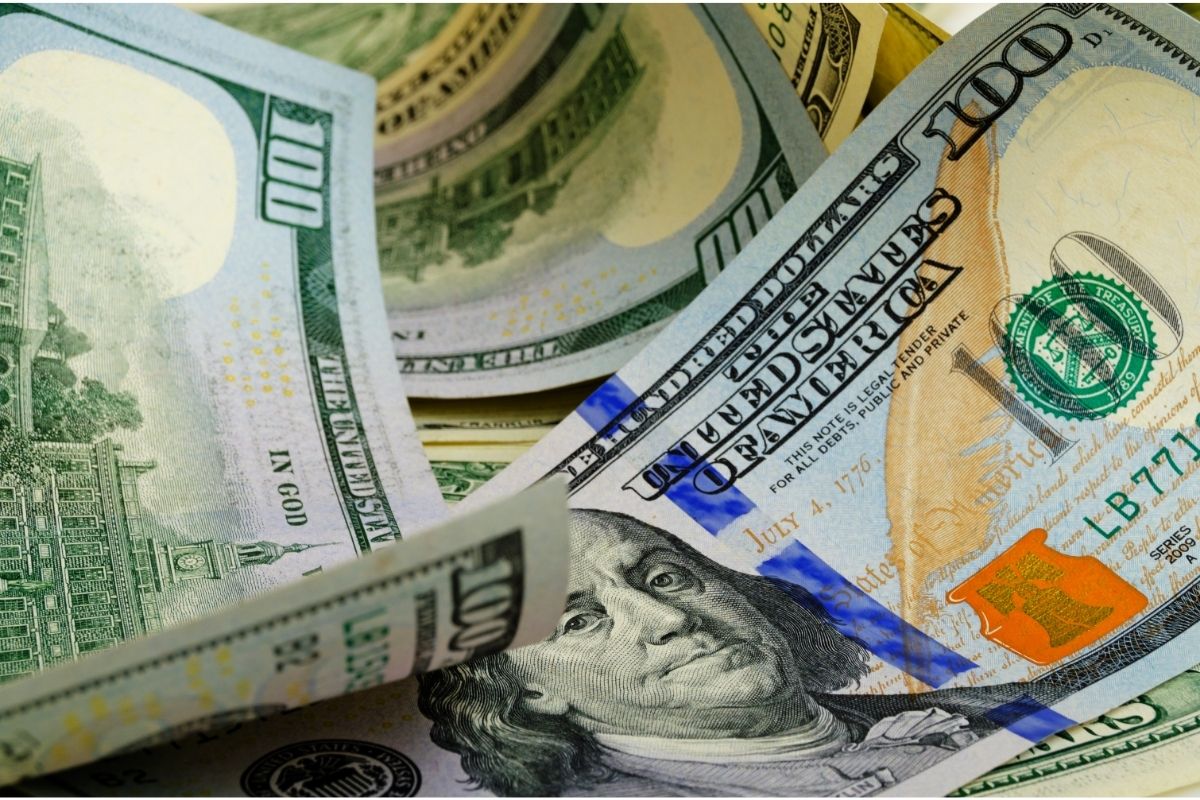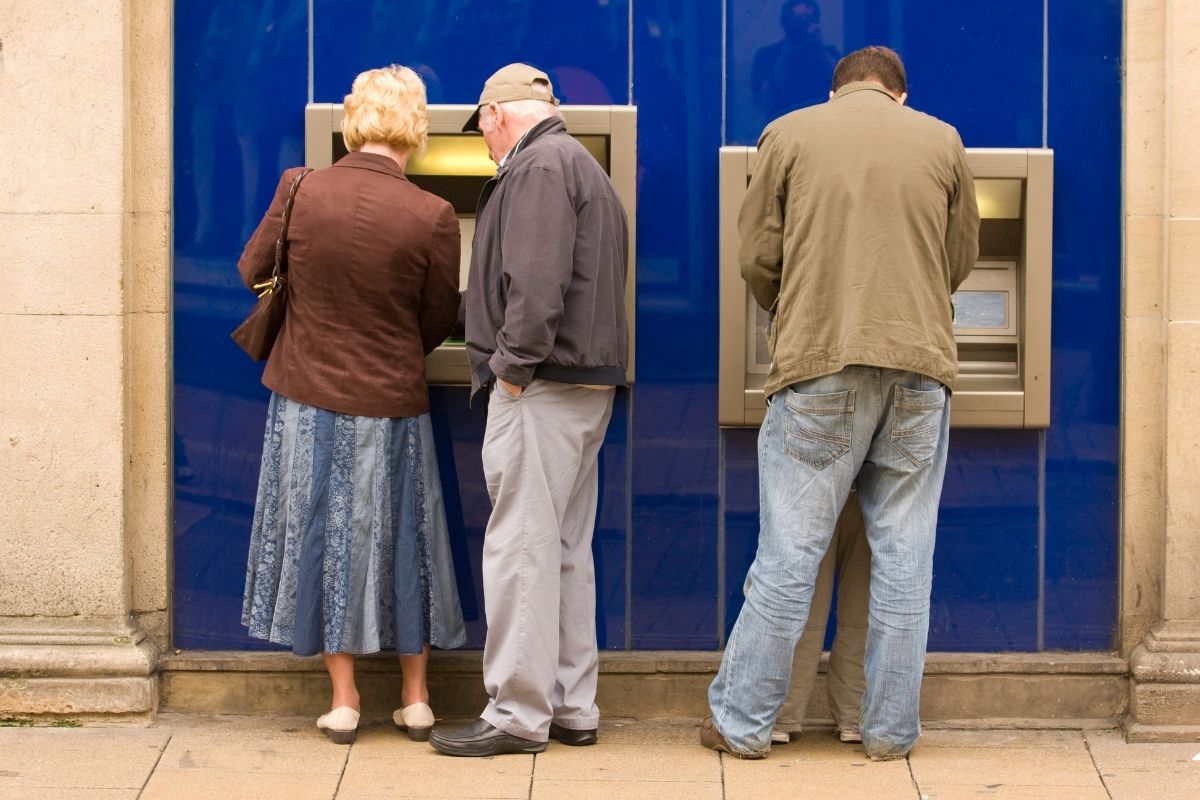Manage your spending and pay bills more easily with a bank account. Having a savings account is also useful for keeping cash on hand for emergency situations.

But how much money should you keep in your checking and savings accounts? Can you have too much cash in your account?
Your financial situation determines how much cash you should keep in the bank. Building a budget is the first step. You need to determine your income and expenses so that you can create a plan to pay off debts and save money.
Once you know where all of your money goes each month, you can decide whether it’s time to start building an emergency fund.
In this guide, you will learn everything you need to know about budgeting, as well as how much money you should aim to have in the bank.
Although it is going to vary from person to person, it is possible for you to break it down into key areas so that you can make sense of it.
So How Much Should Be Kept In The Bank?
There are different opinions about the amount of money that should be in a bank account, depending on financial situations and budgets. The amount varies from person to person.
Your emergency fund should consist of the portion of your savings you keep in the bank to cover unforeseen costs, such as vet bills or vehicle repairs.
You should also have some liquidity to hand to cover your regular bills and discretionary expenses.
You may need to re-evaluate your level of accessibility. Take advantage of this situation to reconsider how you will save for emergencies in the future, even if you already have an emergency fund.
Your budget is the starting point. Budgeting incorrectly could mean that you don’t accumulate any cash in your bank account.
Not sure where to start? Your plan needs to be refined, or you can come up with a new one. Consider these suggestions.
The 50/30/20 Rule
The ever-popular 50/30/20 rule is first on the agenda. Consider your money sitting in three buckets instead of following a complicated, crazy-number-of-line budget.
The best way to build wealth is by saving more than you spend. When you make more money, you’ll have more wiggle room when it comes to saving.
Prices That Are Fixed: 50%
Electricity bills come every month, just like water, internet, car, and mortgage. You can’t avoid paying them, but you can make sure they’re as low as possible. Fixed costs should take about half of your monthly budget.
The best way to build wealth is by saving more than you spend. This is why we want to help you develop good habits now – because they will serve you well as you grow older.
We believe that one day you’ll look back at these tips and realize just how important they were to your success!
Money Available For Discretion: 30%
In this bucket, anything can go (within reason). Spend it on what you want, not on what you need.
Food makes up the majority of this bucket because you have so many options for how to handle this expense:
You can go out to eat or eat at home, you can buy generic or name brand products, or you can buy a can of soup or organic ingredients and make it yourself.
You can also buy a new tablet, go to a movie, or make a donation to charity. The choice is yours. It is generally recommended that you save 30% of your income, but many financial experts argue that 30% is too high.
Financial Investment: 20%
The final 20% of your income should be saved. Now, that’s not to say you have to store it in the bank. There are many ways you can invest that money and get it working for you.
But before you start moving money around, you need to have a decent, liquid emergency fund.
Experts tend to agree that an emergency fund should be about half your yearly salary, but don’t worry if this isn’t attainable for you in your current situation.
Start small, saving whatever you can, and eventually, your emergency fund will start to look healthy. Then, and only then, should you start thinking about investing.
Shifting Money From Your Bank Account

The key to successful investing is to invest only when you are ready. It is very easy to lose sleep over stocks and other investments. However, it is equally as difficult to make decisions about them.
Before you invest, you must be confident in your ability to buy low and sell high. In addition, you must feel comfortable with the risks involved. Only then should you begin investing.
I think the biggest mistake people make is being too aggressive in their approach. They try to take control of every aspect of their finances and end up making bad choices.
For example, instead of focusing on paying down debt, they put all of their money into buying a new car. Or, they use credit cards to finance everything from big screen TVs to eating out.
If you don’t already have a retirement account set up, open one up today. Your employer may offer a 401(k) plan, which lets you contribute pre-tax dollars to investment accounts.
And even better? Contributions aren’t taxed until you pull the money out — potentially allowing you to sock away thousands of dollars annually before taxes hit your paycheck.
(If you’re contributing after-tax dollars, however, you won’t benefit from this strategy.) To find out if your company offers a 401(k), check with Human Resources.
Frequently Asked Questions
How Much Money Should Be In My Savings Account?
Depending on your budget, you should keep a certain amount of money in a savings account. These accounts are designed to receive deposits and not to be withdrawn frequently.
Savings accounts generally allow you to withdraw no more than six times a month.
Savings accounts enable you to put money away that is separate from your everyday banking needs, such as building an emergency fund or saving for a dream vacation.
In the midst of the COVID-19 pandemic, the Federal Reserve introduced an interim rule allowing banks to withdraw money from savings accounts seven times a month instead of six.
Instead, customers may transfer and withdraw funds from their savings as much as they want. Check with your bank for details, since banks are not required to implement this change.
How Much Should Be Kept In A Checking Account?
Checking accounts are designed to handle lots of transactions. You should use them to pay bills, withdraw cash for daily expenses, and avoid getting hit with overdraft fees by having a buffer.
Your checking account should be large enough to cover your monthly bills, withdrawals for other expenses, and still leave room for emergencies.
It should also include some cushion. David Ramsey recommends that you set aside a certain amount of money that makes you feel comfortable, but doesn’t tempt you to overspend.
Summary
Most people would say that if you save money, you’ll be prepared for emergencies. But most people wouldn’t know how to do this. And even if you did, you’d need to plan ahead to make sure you’re ready.
The majority of financial experts would probably agree that saving something is a good start. Then, cultivate it over time.
Once you have a sizable emergency fund, and a robust liquidity savings account for near-future purchases, you have enough in the bank.
At that point, you can start moving money around to make a profit, but do your research — investing can be a risky game!
Financial Disclaimer
This post contains sponsored advertising content. This content is for informational purposes only and not intended to be investing advice.
The investing information provided on this page is for educational purposes only. compundingstacks.com does not offer advisory or brokerage services, nor does it recommend or advise investors to buy or sell particular stocks or securities.
The owner(s) of this blog is compensated to provide opinion on products, services, websites, and other topics. The owner(s) may be compensated if you click on a provided link and purchase or sign up for a service. Any product claim or advice about a product or service should be verified with the manufacturer, provider, or party in question. Copyright Compounding Stacks © 2022
- Is Coinbase Safe For Beginners? - March 25, 2022
- Are Penny Stocks Good For Beginners? - March 25, 2022
- Why You Shouldn’t Save Your Money In A Bank? - March 25, 2022

